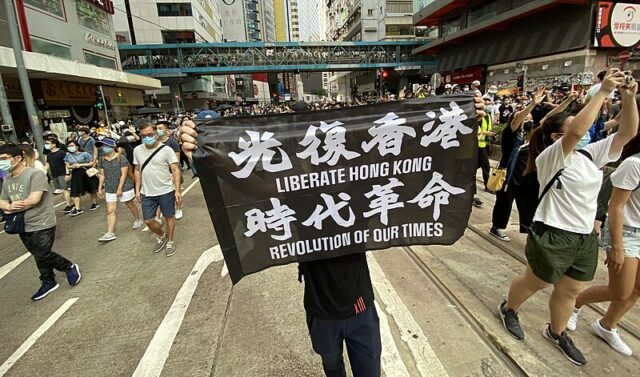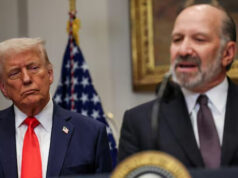Radio Free Asia (RFA) has announced the closure of its Hong Kong bureau, citing concerns over the safety of its reporters and staff members due to the city’s recently enacted national security law, also known as “Article 23.”
In a statement, RFA’s president and chief executive Bay Fang said that while the organization will no longer have full-time personnel in Hong Kong, it will retain its official media registration in the city. Fang acknowledged RFA’s status as one of the last independent news organizations reporting on events in Hong Kong in Cantonese and Mandarin.
“For our audiences in Hong Kong and mainland China, who rely on RFA’s timely, uncensored journalism: Rest assured, our programming and content will continue without disruption,” he said.
Hong Kong, once a bastion of free media and expression in Asia, has experienced a significant shift in recent years. The pro-democracy demonstrations in 2019 led to the passage of a national security law in 2020, which stifled dissent. In the wake of this development, major media outlets like The New York Times announced plans to relocate their digital news operations to Seoul.
In 2021, the pro-democracy newspaper Apple Daily was forced to shut down amid an investigation conducted under the 2020 law.
The recently enacted Safeguarding National Security Ordinance, also referred to as Article 23 based on a clause in Hong Kong’s mini-constitution, the Basic Law, has further intensified uncertainties among Hong Kong journalists. This legislation has created new offenses, increased punishment for offenders, and granted the government sweeping new powers to crack down on all forms of dissent.
The law includes a reference to “external threats” and uses China’s expansive definition of “national security,” which journalists and critics argue is vague. In February, Hong Kong security chief Chris Tang accused RFA of reporting what he described as “false” criticism that the new law would target media organizations, labeling the media outlet a “foreign force” that was misleading the people of Hong Kong.
“Actions by Hong Kong authorities, including referring to RFA as a ‘foreign force,’ raise serious questions about our ability to operate in safety with the enactment of Article 23,” Fang said in Friday’s statement.
RFA opened its Hong Kong office – its first overseas bureau – in 1996. The organization, funded by the U.S. Congress but operating as an editorially independent private news organization, aims to provide news in languages and regions where authorities censor news and stymie freedom of expression and the press.
The ranking Democratic member on the House Foreign Affairs Committee, Rep. Gregory Meeks, expressed deep concern over the decision, calling RFA “a longstanding beacon of independent journalism” in Hong Kong. He stated, “The closure of RFA’s bureau in Hong Kong, after 28 years, is a stark reminder of how brazenly Beijing has extinguished Hong Kong’s autonomy.”
RFA’s restructuring will involve relocating staff members to the United States, Taiwan, and elsewhere amid the closure of the physical bureau in Hong Kong. “RFA will shift to using a different journalistic model reserved for closed media environments,” Fang said, commending the organization’s journalists and staff for making the difficult transition possible.
Also See:
In a career spanning three decades and counting, Ramananda (Ram to his friends) has been the foreign editor of The Telegraph, Outlook Magazine and the New Indian Express. He helped set up rediff.com’s editorial operations in San Jose and New York, helmed sify.com, and was the founder editor of India.com.
His work has featured in national and international publications like the Al Jazeera Centre for Studies, Global Times and Ashahi Shimbun. But his one constant over all these years, he says, has been the attempt to understand rising India’s place in the world.
He can rustle up a mean salad, his oil-less pepper chicken is to die for, and all it takes is some beer and rhythm and blues to rock his soul.
Talk to him about foreign and strategic affairs, media, South Asia, China, and of course India.





